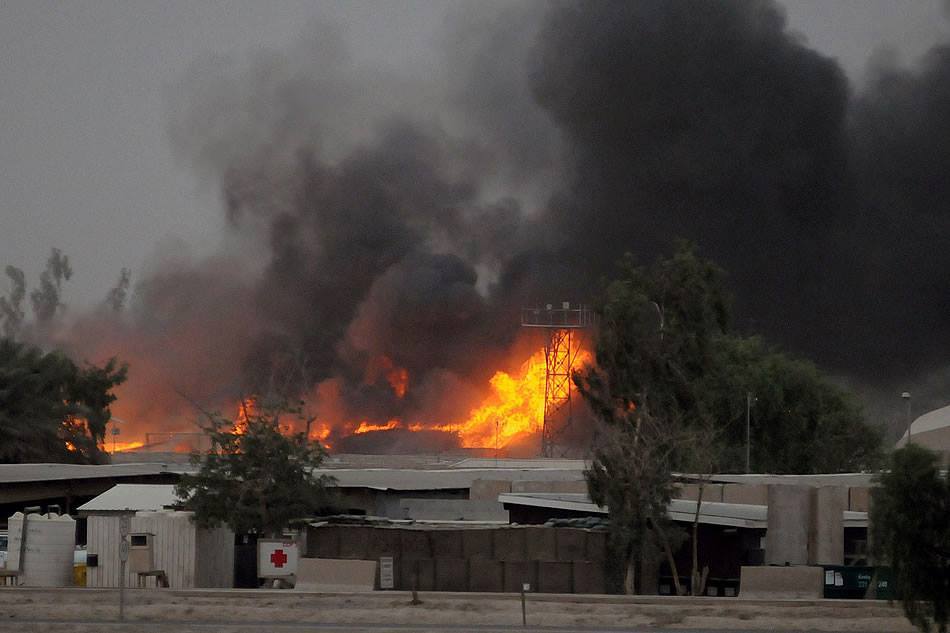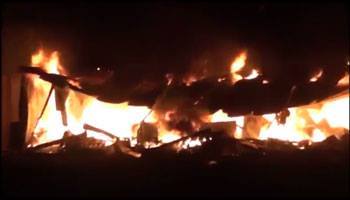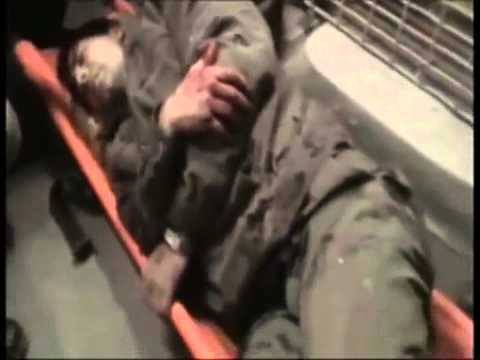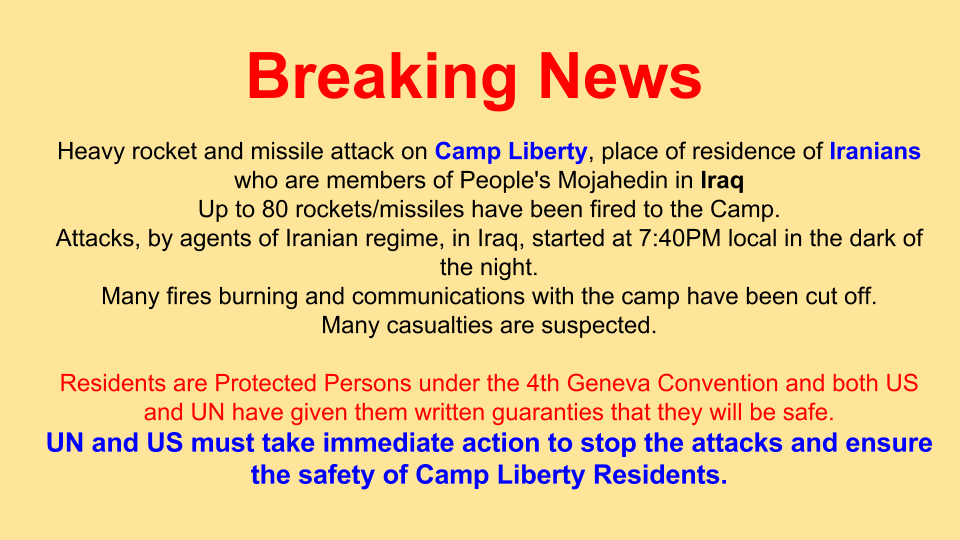While the FBI is performing a robust investigation on Hillary’s servers, emails and communications that include her inner circle of people, no one is publically asking about her present security clearance status. Consider the following facts and then question whether she should even has any clearance.
- There were emails between Hillary Clinton, the White House and Barack Obama himself. The White House has said they were aware of Hillary’s use of a private email but not her use of a covert communications server. Consequently, the White House is fully protecting all communications between Hillary and the White House until after Mr. Obama leaves office. There are legal challenges to this underway.
- Hillary was derelict and forgetful when it came to securing classified material at her office at Foggy Bottom. Classified material must be protected at all times and comply with protocol and procedures.
- Hillary and Susan Rice were warned NOT to use the excuse of the video, 2 days before Susan Rice trotted out to the 5 Sunday morning talk shows as there was no evidence the video played any role in the Benghazi attack.
- Per the House Committee on Benghazi and the CIA: “CIA Head: ‘Analysts Never Said the Video was a Factor in the Benghazi Attacks’.
There is more, but at this point, continue with the question, if Hillary has top security clearance, the objective must be to have it terminated. If Hillary does not have top security clearance at this point as she has been gone from the State Department since 2013, she should be forced to apply again if she becomes the Democratic nominee for President. Then given the existing facts and those that come from the FBI investigation, she should not be granted this clearance status, thus preventing her completely from holding the office of President in totality.
There was also a trail of communications that prove complete disdain of Israel by not only the White House but by Hillary’s State Department internal officials and those of her outer and more clandestine circle of advisors beginning in 2009.
Click here for that particular email.
For perspective and for some context as to the willful and derelict attitude and culture was at Hillary’s State Department, a handful of emails most recently released tell the story.
From Politico: (in part)
A White House official declined to say whether any of the Obama-Clinton emails related to Libya. If so, the White House’s position could cause an executive privilege clash with Congress, since the House Benghazi Committee subpoenaed all Clinton emails related to Benghazi in March of this year.
The new release of Clinton emails — the largest batch of messages made public since State began posting the messages online to comply with a Freedom of Information Act lawsuit — revealed more about Clinton’s knowledge of embassy security issues and provided a window into lighter moments like Clinton being instructed in the use of emojis.
Friday’s document release is the sixth of its kind and with it, more than half of the messages Clinton turned over to the agency from her private email account and server have now been made public. In the new batch, State deemed 268 emails classified at the lowest classification tier, according to spokesman John Kirby, who said that none of these emails “were marked classified at the time they were sent or received.” There are now between 600 and 700 emails newly marked as classified since the releases began in May.
Clinton, who has been battling the controversy regarding her exclusive use of a private email account and homebrew server during her tenure at Foggy Bottom, has contended that no emails on her account were marked as classified at the time she received them.
The emails released on Friday were sent and received largely during 2011 and 2012, with additional messages from 2009 and 2010 that were not part of previous batches.
Many of the early messages reflect difficulty coordinating between Clinton’s team and the White House. In April 2009, then-National Security Council communications adviser Denis McDonough apologized after senior State officials were left out of the loop on White House announcements about Armenia and Sri Lanka. Clinton told aides she had “forcefully” complained and asked a colleague to show “a little sternness” in confronting the White House about the snubs.
In one message in May 2011, Clinton vented to a longtime friend that not even “the allure of Mother Moon in all her glory” could impress Israeli Prime Minister Benjamin Netanyahu.
Longtime Clinton friend Sid Blumenthal, who frequently gave advice that Clinton said was unsolicited, also offered up in May his analysis of the upcoming November 2010 election, making reference to Rand Paul, then a candidate for Kentucky Senate.
“In the short-term, post-May 18 primaries, the splits within the GOP need to be highlighted; the takeover by extremist forces emphasized; the rejection of traditional Republicans within their own party stressed; and the economic consequences of the extremists—not least now, the gift of Rand Paul, the Republicans’ new spokesman on the scene—who would shut down Social Seucrity [sic], Medicare, student scholarships, and the interstate highway system—constantly targeted as a threat to economic recovery. Run, Rand, run!” he wrote in a memo marked “CONFIDENTIAL.”
In another email chain, Clinton expressed hesitance about the protocol of helping out a famous friend. She received at least three emails from chief of staff Cheryl Mills pertaining to a request from a former ambassador asking the secretary of state to lobby for composer Marvin Hamlisch to receive Kennedy Center honors. Clinton, noted Fay Hartog Levin, was a friend and fan of the musician.
After the ambassador followed up again to see about a letter or a call, Mills asked Clinton her thoughts.
“Sure. I’ll do, but didn’t know that was appropriate. Can you ask Ann Stock. I’d like to support him in best way possible,” she wrote.
Hamlisch died in August 2012, four months after the exchange.
Clinton also got a crash course in emojis. “Here’s my question: on this new berry can I get smiley faces?” Clinton asked senior adviser Philippe Reines.
“For email, no, I don’t think so – you need to type them out manually like 🙂 for happy, or :-I I if you want to express anger at my tardiness,” Reines wrote, after his initial email apologizing for keeping her waiting.
Reines pointed out that for texting, “the chart might be there in the lower right, next to where you type the message.”
“If it’s not, I THINK that if you type 🙂 it MIGHT automatically convert it into a symbol. Try it,” he told the secretary of state.
Another email shows Clinton getting briefed on embassy security issues, despite her contention at last week’s House Select Committee on Benghazi hearing that she did not directly deal with security matters.
When Republicans tried to buttonhole Clinton because State declined numerous requests for additional security at the Benghazi compound that was later over-run, Clinton largely waved them off. Those requests for more protection, she argued several times that day, went to people who deal with security — not her, personally.
One email from April 23, 2009, however, shows top State aide Huma Abedin updating Clinton on a few embassy security issues. In a series of bullet points sent to “H2” at 8:34 a.m., Abedin listed steps State was taking to secure Afghanistan and Pakistan embassies, including “increasing the number of hooches, and doubling up staff in lodging.”
“[W]e need to improve the security perimeter — acquiring property adjacent to our current facilities in Kabul, which is now difficult to secure,” one bullet reads. “Long-term, we need embassies in these countries adequate to serve the mission. It’s not so long ago our Embassy in Islamabad was torched; we need a facility which is structurally sound. In Kabul, we need facilities adequate to size the mission needed.”It was not clear, though, if Clinton responded to the email or followed up in any other way.
Another newly released Libya email forwarded to Clinton and her top policy staffer Jake Sullivan, dated about a year before the Benghazi attack, warned of Islamist threats in Libya that could turn eventually pose a serious danger. State Department policy planning official Andrew Miller sent Sullivan a memo warning that once Qaddafi was ousted, Islamist groups that had focused their energy on canning the brutal dictator could turn their attention elsewhere and become violent.
“Once operations against Qadhafi and the regime are wrapped up, this force for unity is likely to dissipate,” Miller wrote. Sullivan forwarded the memo to Clinton, who asked her staff to “pls print.” “It is at this point that militias, including the Islamists, will probably abandon caution and pursue a more aggressive campaign for power, perhaps including violence.”
Clinton emerged from last Thursday’s high-stakes, marathon 11-hour Benghazi committee hearing with her campaign and messaging intact. However, Clinton is not out of the woods as far as potential new discoveries in the email controversy that has dogged her campaign. Beyond the other thousands of emails that the State Department has yet to publicly release, there are myriad Freedom of Information Act lawsuits seeking the release of emails from not only Clinton but also her top aides, and at least two other Senate committees are probing Clinton’s email setup.
Additionally, the FBI is probing Clinton’s email arrangement to determine whether sensitive materials were mishandled, and investigators have reportedly successfully recovered some of the messages Clinton’s aides deleted from her server because they deemed them private.
In an interview in March, Obama said he was not aware of Clinton’s email arrangement until news reports about it emerged earlier this year. However, White House spokesman Josh Earnest acknowledged a short time later that Obama had exchanged emails with Clinton on her account, but was not aware that she had no official account and exclusively used her private one during her time as America’s top diplomat.
When producing records to the House Benghazi Committee, the State Department has repeatedly acknowledged that it was holding back a “small” number of documents that implicate “important executive branch confidentiality interests.” However, a New York Times report Friday was the first to make clear the Obama Administration is taking such a tack with respect to the Obama-Clinton messages.
While the White House seems eager to avoid asserting executive privilege over the Obama-Clinton messages, it may have little choice but to do so if it wants to protect them from disclosure. All of Clinton’s emails have been requested in a Freedom of Information Act lawsuit brought by Vice News. Lawyers said State will eventually have to account for all of those messages and identify a basis for any deletions or omissions. In that context, the Justice Department is likely to assert a version of executive privilege called the “presidential communications privilege.”
The White House could try to argue that the Clinton-Obama messages are not subject to FOIA at all, but that would be an aggressive stance that lawyers who fight for government transparency are sure to resist.
“I would take the view that the copy that is in Obama’s email account at the White House is a presidential record and the copy that went to Hillary Clinton and was maintained on her email server is a State Department record subject to the Federal Records Act and FOIA,” said Scott Nelson of Public Citizen Litigation Group.
Ultimately, the courts are unlikely to force the release of the contents of the Clinton-Obama exchanges through FOIA, although details about who was on the email chains and when they were exchanged will probably emerge in the coming months. Nelson noted that the substance of the messages will probably come out through Obama’s presidential library before they would be accessible under FOIA. Presidential records detailing advice to a president are usually subject to release 12 years after he leaves office.
“You might get access to the presidential records one sooner than the FOIA one,” Nelson said.
Congress could also press for the emails, but if they don’t relate to Libya or Benghazi, it’s unclear which committee would do so. A Hill subpoena could force Obama to formally assert executive privilege over the records, as it did in a House committee’s showdown with Attorney General Eric Holder over records relating to the government’s response to the Operation Fast and Furious gunwalking scandal.











